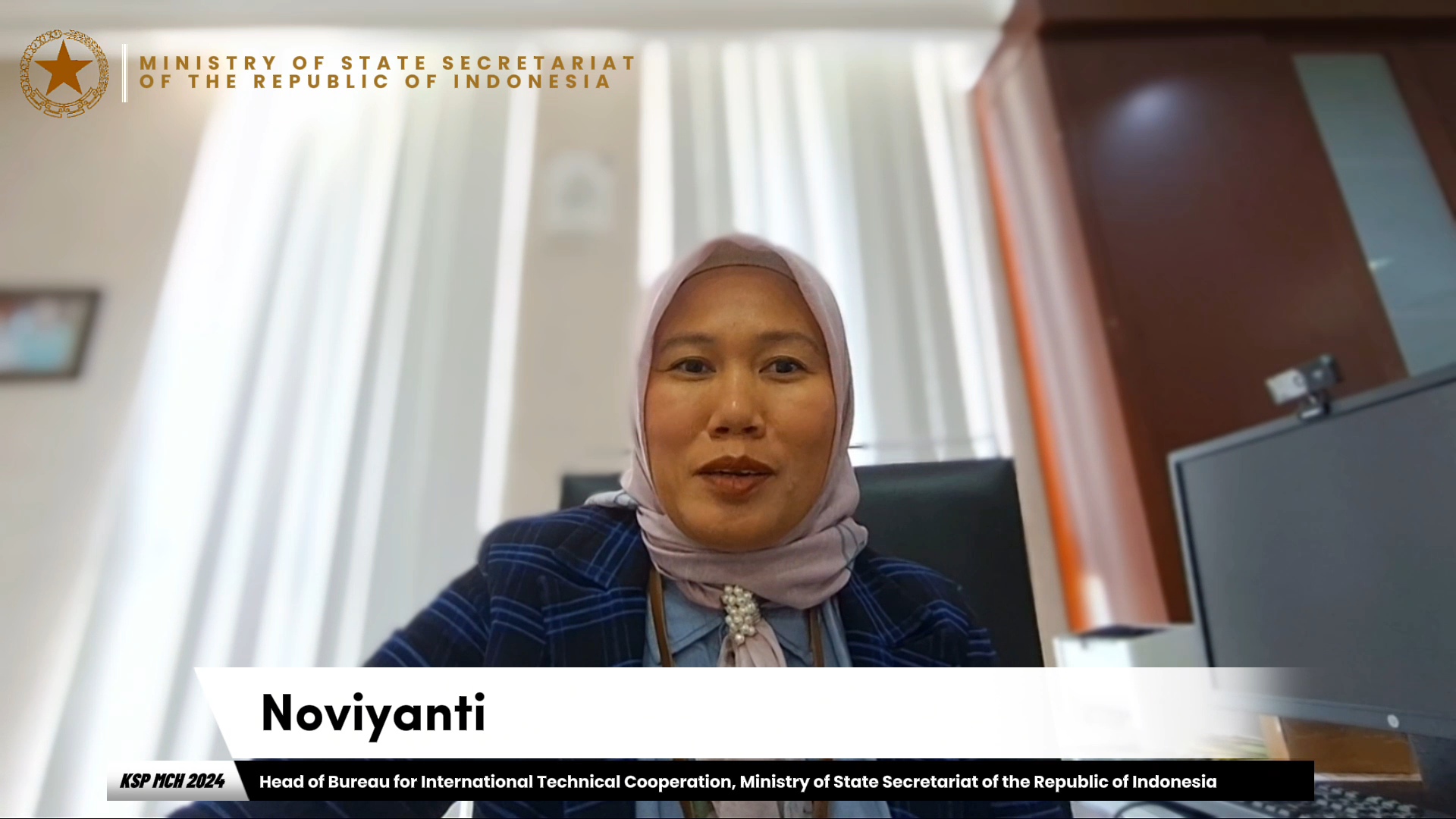
In a continued effort to improve maternal and child health in Indonesia, the Ministry of State Secretariat (MoSS), in collaboration with the Ministry of Health (MoH) and the Japan International Cooperation Agency (JICA), has launched the Knowledge Sharing Program on Maternal and Child Health Handbook 2024. Held in North Sulawesi from October 20 to 25, 2024, the program brought together 21 participants from Burundi, Cambodia, Lao PDR, Timor-Leste, Nepal, Fiji, and Indonesia.
This program showcases the strong synergy between MoSS, MoH, and JICA in advancing maternal and child health through the implementation of the Maternal and Child Health Handbook (MCH Handbook). It also underscores the significance of international collaboration in the healthcare sector. In her opening remarks on Monday (21/10), Noviyanti, Head of Bureau for International Technical Cooperation at MoSS, highlighted that the program, which has been running since 2007, has benefited more than 300 participants from 18 countries. “We hope that this program not only serves as a platform for knowledge exchange but also as a steppingstone to strengthen health systems in the participating countries,” Noviyanti added. During the opening ceremony, the Governor of North Sulawesi, Olly Dondokambey, was also in attendance. He emphasized that strengthening collaboration between government, communities, and health institutions is crucial to improving the quality of life for mothers and children. This sentiment aligns closely with the objectives of the program, which leverages international cooperation and community engagement as key components of its approach.


The program’s agenda covers various aspects designed to provide participants with a comprehensive understanding of the MCH Handbook's application. Sessions and activities include classes on maternal health management, child growth monitoring, and effective communication strategies with patients. Additionally, field visits to healthcare facilities such as community health centers (Puskesmas), integrated health posts (Posyandu), and hospitals in Tomohon and North Minahasa offered participants the chance to observe the practical use of the MCH Handbook in daily healthcare services.

Participants also expressed high appreciation for the program. Thierry Nzeyimana from Burundi was impressed by the integration of various maternal and child health services. Chankham Tengbriacheu from Laos noted that Indonesia's MCH Handbook model could serve as an inspiration for adoption in her country. “This experience has shown us the remarkable collaboration among various stakeholders, including MoSS, MoH, the Ministry of Foreign Affairs, and JICA. We see great potential in adopting this approach in Laos,” she said.

In addition to capacity building, the Knowledge Sharing Program on Maternal and Child Health Handbook 2024 also creates opportunities for participants to expand their international networks. Participants from different countries had the chance to discuss, exchange ideas, and forge new partnerships that could be implemented in their respective nations. This network is expected to serve as a sustainable platform for sharing best practices in maternal and child health, reinforcing global solidarity in addressing evolving health challenges. (FDI/Working Group of SSTC MoSS)
